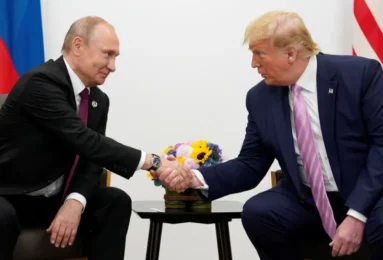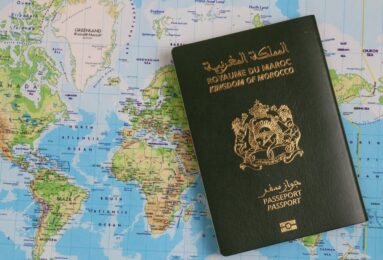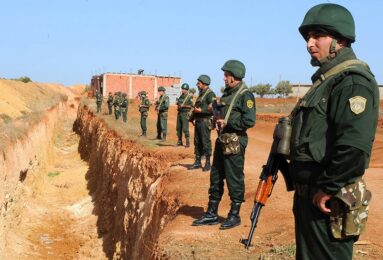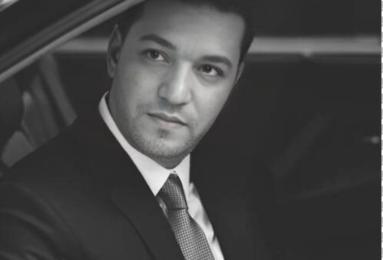The Israeli Pegasus spyware scandal involving Morocco continues to attract attention. Morocco has been accused of using the Pegasus program, developed by Israel, to spy on political figures, activists and journalists, including targets in Spain and France.
While Morocco denies these accusations, investigations revealed that thousands of phone numbers were targeted. The scandal has caused diplomatic tensions, especially with France, where a judicial investigation is underway into the alleged surveillance of French President Emmanuel Macron and members of his government.
In June 2021, international organizations and media outlets revealed that the Pegasus spyware, created by NSO Technologies, was surreptitiously installed on the phones of a large number of world leaders, politicians, human rights activists and journalists, giving the attacker full access to everything on the device.
The source added that Pegasus was used to spy on 180 journalists, 600 politicians, 85 human rights activists and 65 heads of companies in different countries.
In the midst of these events, the Paris prosecutor’s office announced that it had opened an investigation after two journalists and the Mediapart news website filed a complaint related to the Pegasus spyware.
In April 2022, Spanish news agency Efe reported that the Spanish judiciary opened an investigation into the alleged spying on Spanish ministers, political figures and media figures using the Pegasus program.
But in June 2023, the judge in charge of investigating the phone hacking allegations announced that he had halted his investigation due to a “total” lack of cooperation from Israel.
Amnesty International said at the time that the Israeli authorities’ lack of cooperation with the Spanish criminal investigation is symptomatic of impunity in the circumstances surrounding the misuse of spyware and electronic surveillance technology.
Just weeks later, Spain’s Supreme Court reopened an investigation into the use of Pegasus, after receiving documents from French judicial authorities detailing their own investigation into the use of the program for espionage. The court said that “by comparing the technical elements collected in the French investigation” with those conducted in Spain “the investigation was able to progress to trace the source of the hacking.”
A European Parliament report in the same context cited Morocco “as a potential culprit.”
The authoritarian state determined to silence journalists with the Pegasus
“France’s complacency in the face of the Pegasus cyber espionage scandal is unacceptable, given that it targeted members of the government and even the President of the Republic (Emmanuel Macron). What would France’s reaction have been if the source of this cyber espionage scandal had been China or Russia?” Rosa Moussaoui, a French journalist for the French newspaper L’Humanité, denounced the attempt to cover up the spying scandal.
she wrote in her article published in Spain’s Independente under the title “Pegasus and Morocco’s spying, as terrifying as it is invisible”, If it had come from China or Russia, there would have been a diplomatic and political reaction of a completely different magnitude.
In this context, Rosa described Morocco as an “arrogant authoritarian state” bent on silencing journalists who refuse to submit to its propaganda. She points to Morocco’s legal action against French media outlets that covered the Pegasus scandal, including Le Monde, Radio France, France Médias Monde, and Mediapart.
The French journalist said: “Fortunately, the prosecutor rejected the principle of opening a defamation case.” However, the French journalist says: “Morocco has appealed the case and is represented by a lawyer who specializes in silencing journalists on behalf of large multinational corporations and carries out real judicial harassment against critical journalists.”
She explained that all of her work on Morocco and Western Sahara, from 2010 to the present, has been “systematically subjected to derogatory and abusive comments online,” which she described as “orchestrated and organized.”
She referred to what she called “despicable articles in the defamatory press linked to the Moroccan regime. These and other issues are what prompted us to close comments on articles published on our website.”
During her visit to Morocco to cover the appeal trial of human rights defender Wafaa Sharaf in 2014, to cover the trial of Sahrawi political prisoners at Gdeim Izik in Rabat in 2016, and to cover the popular uprising in the Rif in 2016, she was subjected to “very close and clear surveillance, which was clearly intended to intimidate me.”
A report by Reporters Without Borders (RSF) documented everything she was subjected to.
She added: “When they were following the photojournalist who was accompanying me, the tracking never stopped and we could only escape the police officers who were chasing us by deactivating the location option on our phones.”
“In the spring of 2021, journalists from the Forbidden Stories consortium contacted me and informed me that they suspected that there might be spyware planted on my phone. I handed my phone over to a specialized team from Amnesty International’s security lab for examination and analysis. The analysis did not reveal anything on the new device.”
But in July, on the eve of the unveiling of Project Pegasus, a journalist from Forbidden Stories contacted me again, says the French journalist, to inform me that I was, in fact, on a list of potential targets for this Israeli spy program, a list that had been compiled, according to the British Daily Mail.
Rosa warned of the dangers of cyber-surveillance, calling it “an extension of physical surveillance on a staggering scale. But it is even more terrifying because it is invisible and undetectable.”









